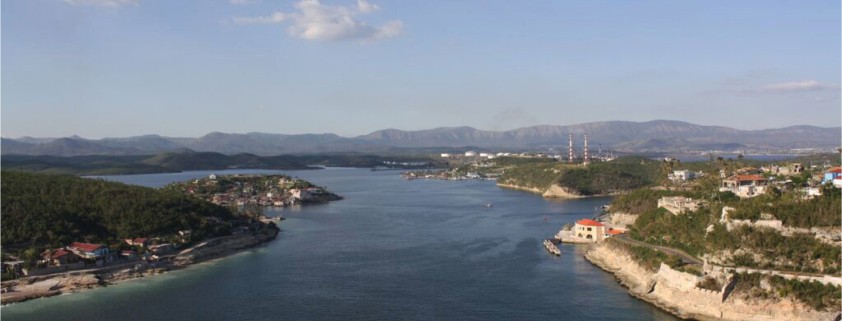
While the event is free to attend, we appreciate support in producing the event. Please click on the link below to provide a tax deductible donation. Even if you can’t make it, your donation will help us produce content you (and others) will be able to access later.
DATE AND TIME: November 14, 2015 – 9:00am-6:00pm
LOCATION: William James Hall, Room B-1, Harvard University, 33 Kirkland Street, Cambridge, MA, 02138
OVERVIEW
The thaw in U.S.-Cuba relations is creating space for dramatic change and improvement in Cuba’s economy, society, and built environment. With this new mobility will come tremendous opportunity to revitalize Cuba’s economy and improve the lives of Cubans, challenges in addressing myriad transitional and structural issues, and urgency to set constructive frameworks, as actions taken in the coming months will shape Cuba over the next several decades.
This conference will:
- Create an open, frank, and constructive discourse on Cuba’s future.
- Explore via lively panels the possible effects of transition on Cuba’s built and natural environment, and how to harness the forces of change to improve both.
- Foster an ongoing multi-party conversation leading to guiding principles for economic, ecological, and cultural resilience in Cuba.
AGENDA
9:00am-9:30am Check-in
9:30am-9:45am Introduction and Framing
9:45am-10:30am Keynote address: Miguel Coyula, Architect / Urban Planner / Professor, University of Havana
10:30am-12:30pm Panel 1
12:30pm-1:30pm Lunch
1:30pm-3:30pm Panel 2
3:30pm-3:45pm Coffee break
3:45pm-4:30pm Closing: The Way Forward
4:30pm-6:00pm Reception
PANELS
Panel 1: Ecology, Culture, and Community
Over half of the Caribbean’s ecologically preserved land is Cuban territory, including some of the last pristine coral reefs in the Western hemisphere, Cuba, has – thus far – mostly avoided the all-inclusive tourism-driven overdevelopment missteps that have plagued Cancún, Spain’s Costa del Sol, and Turkey’s Mediterranean Coast. How will a transitioning Cuba balance the promises of tourism and retain its unique cultural and unparalleled environmental character?
10:30-11:45pm Panelist Presentations
Legal Frameworks for Environmental and Cultural Preservation.
Aynel Alvarez Guerra, Foreign Staff Associate, Brown Rudnick
Education, Research, and the Role of Local Communities in Coastal Zone Management: A Caribbean Perspective
Jorge Alberto Angulo Valdés, Professor and Head of Marine Conservation Group at Center for Marine Research, University of Havana
Divided Shores, Collective Ecosystems: Working Across the Straits of Florida since Helms-Burton (1996) and Future Directions for Environmental Policy
Dr. David Guggenheim, Marine Scientist / President, Ocean Doctor
Community-Focused Urban Development in a Transitional Context
Alejandro Echeverri, Loeb Fellow 2015-16/Co-founder and Director, Urbam
Respondent: Dilip da Cunha, Lecturer in Urban Planning and Design at Harvard Graduate School of Design, Adjunct Professor at the School of Design, University of Pennsylvania
11:45am-12:30pm Panelist discussion and questions
Panel 2: Built Environment and Housing
Cuba’s built environment and its housing stock face major capital backlogs and physical/ functional obsolescence. Substantial long-term capital finance would normally be required to upgrade and transform this stock. How will public finance (e.g. government, DFIs) and increasing private finance (e.g. developers, banks) interact? What are the spatial implications of this transition, and how will policies shape, or be affected by, the interaction? How do larger-scale projects – infrastructural improvements to roads and bridges, telecommunications and internet upgrades, and electrical grid and port upgrades – fit the vision?
1:30pm-2:45pm Panelist Presentations
History and Modernity: Transition through Cuban Architecture
Gabriel Fuentes, founder and director of DA|S Design Action Studio for Research, Architecture + Urbanism
Global Context: The interaction of public and private finance on housing and built environment in transitional states
David A. Smith, CEO and Founder, Affordable Housing Institute
Development Pressures: Negotiating a Complex Business Space
Adolfo R. Garcia, Counselor at Law, Brown Rudnick
Cuba Facing Forward: The Function of Planning in a Regional Re?imagining
Joseph L. Scarpaci, Ph.D. (AACSB-Marketing), Executive Director, Center for Cuban Culture + Economy
Respondent: Belmont Freeman, FAIA, Principal of Belmont Freeman Architects
2:45-3:30pm Panelist discussion and questions
Closing: The Way Forward
What is a transitioning context, and where do development and environment fit it? Economy, built environment, and ecology influence each other, which, in turn and affect and are affected by government policy and regulation. How can Cuba find a way forward that yields a sustainable, prosperous, inclusive island that also maintains its distinctive Cuban character? What can we do to help achieve that vision?
Co-organizers: Harvard Graduate School of Design Master of Design Studies (MDes) Risk and Resilience and the Affordable Housing Institute



